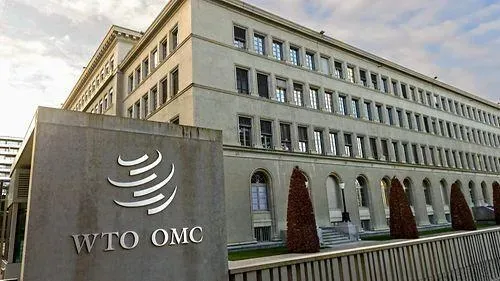Much Ado About Nothing? EU’s WTO Complaints Against China Have Distracted from Useful Dialogue on the Enforcement of IP Rights

Source: Bundesregierung
Policy Brief by Weinian Hu, Independent Researcher
15 November 2023
Abstract
In December 2022, the EU lodged a complaint against China with the WTO regarding the power of
Chinese courts to issue worldwide and prospective anti-suit injunctions (ASIs) that extend
beyond its jurisdiction. As a result, standard essential patents (SEP) holders may be
prohibited from asserting their patent rights protected by the TRIPS Agreement in non-Chinese
jurisdictions. Such ASIs may not be limited to the specific scope, conditions or circumstances
related to the concrete cases before a Chinese court, either. The EU substantiated its
allegation by taking the examples of ASI orders granted in 2020 by various Chinese courts in
four licensing disputes related to SEPs. In the same context, the EU complained that China has
not applied and administered its laws, regulations and other measures in a uniform, impartial
and reasonable manner.
In each of the four licensing disputes mentioned above, an
ASI was sought by the complainant in a Chinese court while being sued by the respondent for
patent infringement in non-Chinese jurisdictions in parallel proceedings. However, despite the
litigation, the parties continued their negotiations. Licensing agreements were reached, and
lawsuits were withdrawn, even before the EU submitted its complaint.
The ASIs
granted by the Chinese courts are not without controversy, indeed, in relation to their
respective scope. Nonetheless, however unjustifiable, they were all neutralised subsequently
by the anti-ASIs issued by non-Chinese courts when adjudicating the patent infringement cases
in front of them. Thus, although presently there are no international rules that govern ASI
application, courts in different jurisdictions are efficient in preserving judicial
sovereignty and protecting patent rights. In other words, judges are competent in fixing
unjustifiable ASIs.
It is regrettable that the EU and China were not able to resolve
their differences on ASIs through dialogue. This is despite the fact that both sides have succeeded
in resolving many IPR issues, including IP legislation, in the past two decades thanks to the comprehensive
EU-China IPR Dialogue mechanism. With its robust telecoms innovation landscape, China will emerge
as a global IP litigation centre, epitomised by ASI litigation. Meanwhile, Chinese jurisprudence
will also gradually influence international IP law-making, which should encourage the EU to cooperate
more closely with China on IP protection.
Please note that views expressed by the author do not reflect the policies or positions of ICES.